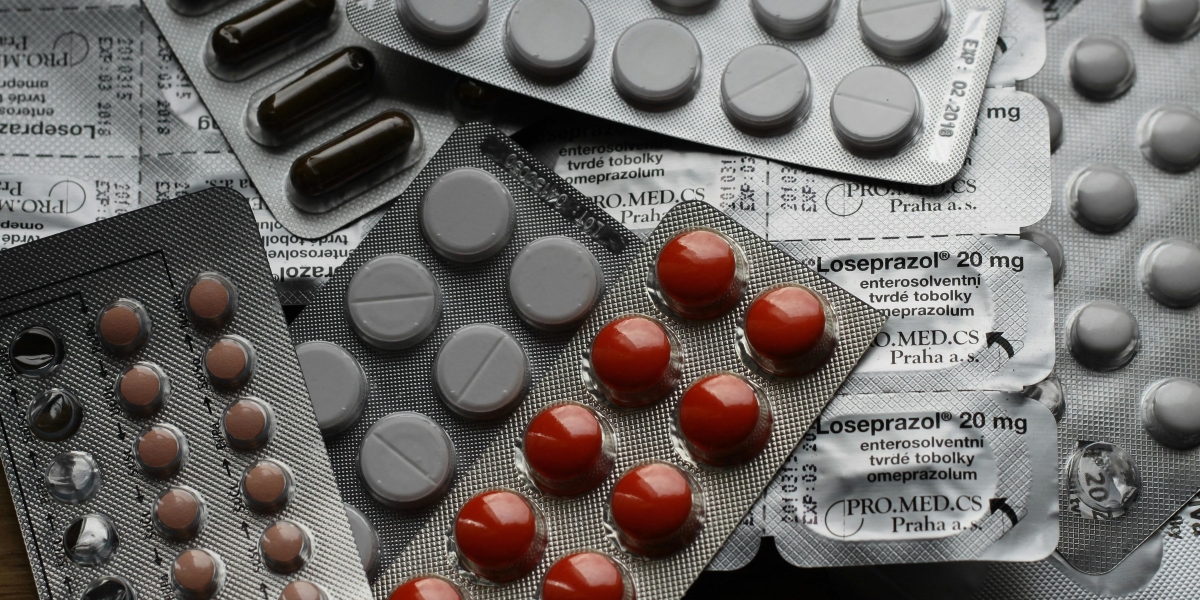Published Mar 05, 2025 | 7:00 AM ⚊ Updated Mar 05, 2025 | 7:00 AM

The research covered 107 patients who had developed Ethambutol-induced Toxic Optic Neuropathy, a condition in which the optic nerve is damaged. (Representational Image/Creative Commons)
Synopsis: A recent drug safety alert from the Central Drug Standard Control Organisation has flagged Telma AM, a widely used hypertension medication by Glenmark Pharmaceuticals, as “Not of Standard Quality” after laboratory tests confirmed it failed to meet Indian Pharmacopoeia standards. The drug was among 145 medicines identified as substandard in January 2025, leading to quality control concerns in pharmaceutical industry.
Telma AM, a widely prescribed hypertension medication manufactured by Glenmark Pharmaceuticals, has been declared “Not of Standard Quality” (NSQ) by the Central Drug Standard Control Organisation (CDSCO).
It was among 145 drugs identified as substandard in January 2025, based on tests conducted by both state laboratories and CDSCO’s laboratories.
The latest drug safety alert flagged the medicine for failing to meet the standards set by the Indian Pharmacopoeia (IP), the official guideline for drug safety, efficacy, and composition in India.
Laboratory tests at the Central Drugs Laboratory (CDL) Kolkata confirmed that Telma AM “does not conform to IP.”
The drug, a combination of Telmisartan (an angiotensin II receptor blocker) and Amlodipine (a calcium channel blocker), is widely used to manage hypertension, a condition that affects approximately 30 percent of Indian adults, according to the Indian Council of Medical Research (ICMR).
If left uncontrolled, hypertension can lead to severe complications such as heart attacks, strokes, and kidney failure.
Various factors may cause a drug to fail quality standards, including incorrect composition, impurities, improper dissolution, sterility issues, or pH imbalance. Authorities may recall drugs classified as NSQ, subject them to further testing, or take regulatory action against them.
Another drug flagged in the same alert was Clavpark-LB 625mg, a combination of Amoxycillin, Potassium Clavulanate, and Lactic Acid Bacillus.
State drug regulators conduct monthly random sampling of medicines from sales and distribution points to ensure compliance with stringent quality standards.
In January 2025, state regulators identified 93 medicine batches as NSQ. Under the Drugs and Cosmetics Act 1940, failing to meet quality criteria means such drugs are ineffective, harmful, or both.
South Indian states reported 90 of the 93 flagged drugs.
The Karnataka Drugs Testing Laboratory in Bengaluru identified 18 NSQ drugs, the highest among the states, including Compound Sodium Lactate Injection IP (Ringer’s Lactate) for fluid resuscitation and Aceclofenac & Drotaverine Hydrochloride Tablets for pain relief.
Tamil Nadu’s Drugs Testing Lab in Chennai flagged 16 drugs, including Nozal Cream (Ketoconazole), an antifungal, and Gentamicin Injection IP, an antibiotic. The King Institute of Preventive Medicine & Research in Guindy, Chennai identified six drugs.
The Puducherry Drugs Testing Lab found 12 NSQ drugs, including Cefpodoxime Proxetil Tablets IP 200 mg (Rizdox-200), an antibiotic, and Calcium Carbonate & Vitamin D3 Tablets (Victocal-D3), a bone health supplement.
The Kerala Lab in Thiruvananthapuram flagged 13 drugs, including Cetirizine Syrup IP, an antihistamine, and Losartan Potassium Tablets IP 25 mg, a hypertension medication.
Tamil Nadu’s Madurai Drugs Testing Lab identified 14 NSQ drugs, while Telangana State Drugs Control Lab flagged eight, including Pantoprazole Tablets IP, an antacid, and Retibak (0.2 percent Retinol) Face Serum, a cosmetic product. Jammu and Kashmir laboratories flagged one substandard drug.
These laboratories perform rigorous tests to assess active ingredient potency, drug release, and impurities to ensure compliance with the Drugs and Cosmetics Act 1940. Authorities recall batches of drugs that fail these tests and investigate their manufacturing processes.
The flagged drugs span a broad range of categories, including antibiotics, cardiovascular medications, supplements, and antifungals, highlighting the comprehensive scope of India’s pharmaceutical market and the rigorous testing efforts by regulators.
In addition to state laboratory findings, CDSCO’s own testing identified 52 NSQ drugs across multiple therapeutic categories, including antibiotics, pain relievers, gastrointestinal treatments, cardiovascular medicines, respiratory drugs, and vitamin supplements.
Multiple government laboratories across India conducted these tests. The Central Drug Laboratory (CDL) in Kolkata identified 23 substandard drugs, the highest number.
The Regional Drug Testing Laboratory (RDTL) in Guwahati tested 14 drugs, while the Central Drug Testing Laboratory (CDTL) in Mumbai found five NSQ drugs. Other key laboratories involved in testing included RDTL Chandigarh, CDTL Hyderabad, and CDTL Indore.
The presence of widely prescribed medications in the NSQ list has raised concerns over quality control in Indian pharmaceutical industry.
Among flagged antibiotics were Cefuroxime Axetil Tablets IP 500 mg and Cefixime & Ofloxacin Tablets, both commonly used to treat respiratory and urinary tract infections.
Pain relievers like Diclofenac Sodium Injection IP (DEPAIN-75) and Tramadol Hydrochloride Injection 50 mg/ml (Tramacop) also failed quality tests. Doctors often prescribe these medicines for arthritis and musculoskeletal conditions.
Gastrointestinal drugs found substandard included Metoclopramide Injection BP, used for nausea and vomiting, and Rabeprazole Sodium Injection IP, prescribed for acid reflux.
Cardiovascular medications such as Ticagrelor Tablets IP 90 mg (Tigamon 90), which prevents blood clots, and Losartan Tablets IP 50 mg, used for hypertension, also failed testing.
Respiratory and cold medications on the NSQ list included Ambroxol Hydrochloride, Levosalbutamol Sulphate & Guaiphenesin Drops (Breath-LS Drops), and Ambroxol Hydrochloride, Guaiphenesin, Terbutaline Sulphate & Menthol Syrup (BRONKOREX AM Syrup), both commonly prescribed for cough and congestion.
(Edited by Dese Gowda)

